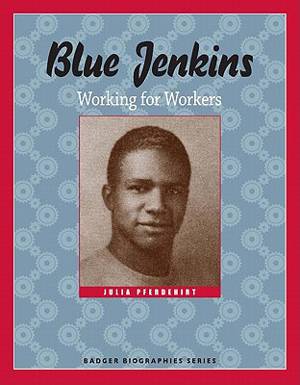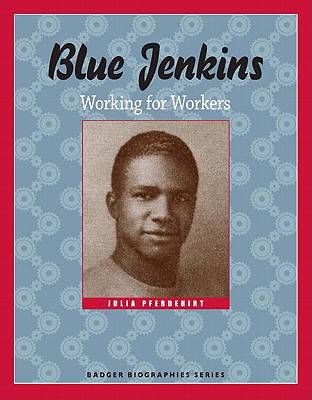
- Afhalen na 1 uur in een winkel met voorraad
- Gratis thuislevering in België vanaf € 30
- Ruim aanbod met 7 miljoen producten
- Afhalen na 1 uur in een winkel met voorraad
- Gratis thuislevering in België vanaf € 30
- Ruim aanbod met 7 miljoen producten
Zoeken
€ 19,95
+ 39 punten
Prijzen
Omschrijving
When William "Blue" Jenkins was only six months old, he moved with his parents from a Mississippi sharecropper's farm to the industrial city of Racine, Wisconsin with dreams of a new life. As an African-American in the pre-civil rights era, Blue came face to face with racism: the Ku Klux Klan hung a black figure in effigy from a tree in the Jenkins family's yard. Growing up, Blue knew where blacks could shop, eat, and get a job in Racine--and where they couldn't. The injustices that confronted Blue in his young life would drive his desire to make positive changes to his community and workplace in adulthood.
This addition to the Badger Biographies series shares Blue Jenkins's story as it acquaints young readers with African-American and labor history. Following an all-star career as a high school football player, Blue became involved in unions through his work at Belle City Malleable. As World War II raged on, he participated in the home-front battle against discrimination in work, housing, and economic opportunity. When Blue became president of the union at Belle City, he organized blood drives and fought for safety regulations. He also helped to integrate labor union offices. In 1962, he became president of the U.A.W. National Foundry in the Midwest, and found himself in charge of 50,000 foundry union members.
This addition to the Badger Biographies series shares Blue Jenkins's story as it acquaints young readers with African-American and labor history. Following an all-star career as a high school football player, Blue became involved in unions through his work at Belle City Malleable. As World War II raged on, he participated in the home-front battle against discrimination in work, housing, and economic opportunity. When Blue became president of the union at Belle City, he organized blood drives and fought for safety regulations. He also helped to integrate labor union offices. In 1962, he became president of the U.A.W. National Foundry in the Midwest, and found himself in charge of 50,000 foundry union members.
Specificaties
Betrokkenen
- Auteur(s):
- Uitgeverij:
Inhoud
- Aantal bladzijden:
- 160
- Taal:
- Engels
- Reeks:
Eigenschappen
- Productcode (EAN):
- 9780870204272
- Verschijningsdatum:
- 26/10/2011
- Uitvoering:
- Paperback
- Formaat:
- Trade paperback (VS)
- Afmetingen:
- 178 mm x 226 mm
- Gewicht:
- 385 g

Alleen bij Standaard Boekhandel
+ 39 punten op je klantenkaart van Standaard Boekhandel
Beoordelingen
We publiceren alleen reviews die voldoen aan de voorwaarden voor reviews. Bekijk onze voorwaarden voor reviews.










